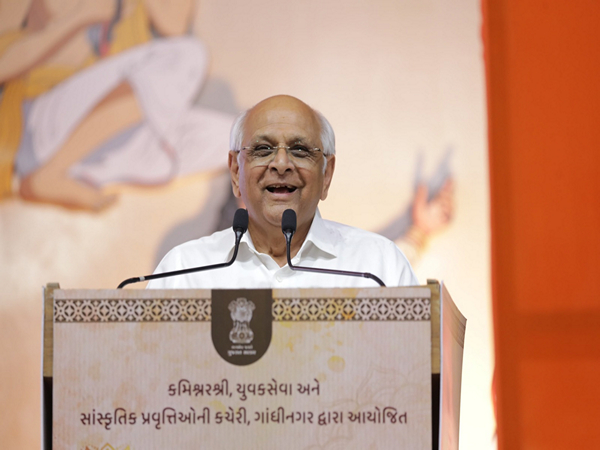Upset over long queues at airports, parliamentary panel calls for biometric screening methods
Apr 19, 2022

New Delhi [India], April 19 : After a two-year restriction due to the COVID pandemic, the Ministry of Civil Aviation (MoCA) has recently allowed 100 per cent of passengers capacity in domestic and international airports.
But several airports in the country have reported long queues during peak hours of flight operations.
Parliamentary Standing Committee on Transport, Tourism and Culture submitted its reports in the parliament during just concluded the budget session and recommended non-intrusive screening entry inside the airports.
"The Committee during its deliberations with the Ministry has often pointed out that a few of the airports, there are long passenger queues during peak hours. In view of the government guidelines for avoiding public gatherings in the context of the prevalence of the COVID-19 pandemic, more steps may be taken to resolve the issue. The Committee also notes that the Ministry proposes to increase the number of flights. The Committee observes that at most of the airports in the country, Door Frame Metal Detectors (DFMDs), Hand Held Metal Detectors (HHMDs) and physical frisking are done on a random basis," the report of parliamentary panel said.
The Committee is of the opinion that the present system of DFMD or HHMD, besides being obsolete technology, is intrusive on the privacy of passengers.
"In this context, the Committee recommends that in addition to steps taken to ease queues, the Ministry may also expedite its proposal for installation of Full Body Scanners at airports, which would enhance the technology of frisking of passengers and lead to faster clearance of queues at frisking points. Besides, the number of frisking counters may also be increased at airports and adequately trained personnel should be posted to man these counters effectively," said the report.
In view of the increasing crowd at airports across the country, the parliamentary panel in its report suggested introducing biometric facility and retinal scanners for identification of passengers to avoid crowding.
"Ministry should explore the feasibility of biometric screening of passengers at airports, using tools such as facial recognition, fingerprint and retinal scans which are presently being used at many airports worldwide. The Committee desires that the Ministry may examine the feasibility of retinal scans for frisking passengers, as the retinal scan data of most of the domestic passengers are available in the Aadhaar database," the report said.
"Biometric security is non-intrusive and faster than conventional screening, which leads to faster screening of passengers and leads to less crowding at airports and is therefore being introduced in many airports abroad. The Committee, therefore, recommends that the global best practices for biometric scanning and screening of passengers should be introduced in the country," it added.
Civil Aviation Minister Jyotiraditya Scindia on Monday expressed confidence about India's aviation industry getting back to the normal pre-pandemic level.
The aviation industry of India touched over four lakh domestic passengers in a day on Monday.
Terming the development as "historic" Scindia, while speaking to ANI, said, "It was a very difficult time in the previous years due to the covid pandemic. We have seen over 3.7, 3.8 and 3.9 lakhs passengers in a day over the last 10 days. I'm confident that travelling--both domestically and internationally, in India is coming back strong."


















